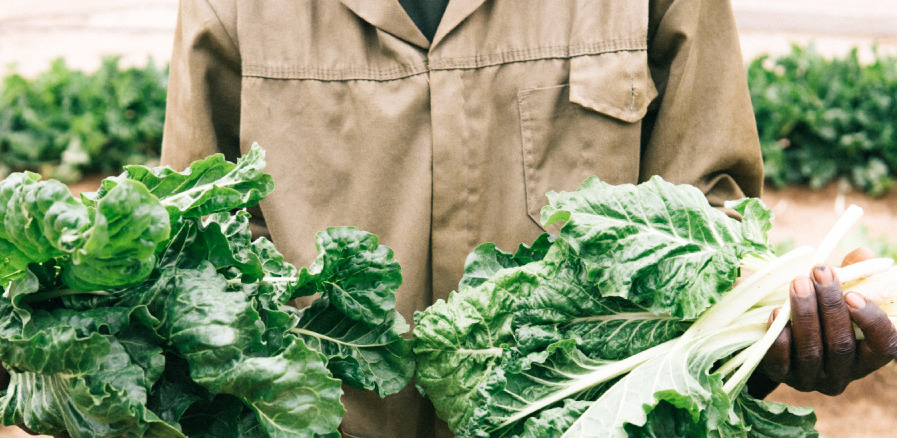Upon hearing the word ‘agriculture’, one never conjures images of a sandy desert, but rather of green fields with a lot of rain or perennial rivers.
But coastal-based AvaGro has proven that technology can be harnessed to produce high-value crops even on the most arid, inhospitable land.
Leonie Hartman, the co-founder of the 20-ha AvaGro project, situated in the dunes around Swakopmund, says the farm produces high-quality vegetables which have been on supermarket shelves in Namibia since 2019.
They are now also beign exported to neighbouring South Africa.
Hartman says the potential for agriculture to play a greater role in the country’s development is enshrined in Namibia’s Vision 2030, and AvaGro is an agricultural solutions provider, aiming to contribute to the shift from traditional farming to precision agriculture.
“The goal is not without challenges. Namibia has a maximum of 30% cultivatable land, and only a third of the country’s water is suitable for crop cultivation.
“Soil with a high salt content and alkaline properties make crop cultivation almost impossible in the country,” she says.
Hartmann says AvaGro addresses these challenges by adopting innovative solutions, including the use of high-tech agriculture with media cultivation and drip irrigation that allows for more productive use of water and helps to overcome soil-related challenges through greenhouse efficiencies.
“We also use desalinated water drawn from boreholes, which enables water-efficient cultivation methods of hydroponics with drip irrigation.
“Under the arches of three-hectare greenhouse and shade net covers, the farm has become the biggest hydroponics tomato producer in Namibia. Besides that, we also grow colourful cut flowers, including gerbera and gypsophila,” she says.
Hartman says an additional three hectares of open field is currently under drip irrigation, producing green asparagus for local and export markets.
An olive grove of 1 000 trees yields the fruit for premium cold-pressed extra virgin olive oil.
The AvaGro farm provides 60 workers and their families with a livelihood.
“This precision farming operation is a world apart from most team members’ livestock-rearing roots, but it offers a life connected to the land, a satisfying pursuit in skill acquisition, and an opportunity to help build the economy,” Hartman says.
She says at AvaGro farm they grow, pack and market fresh produce throughout the year using reenhouse tunnels, a multi-span structure, and shade nets to cultivate especially tomatoes, peppers, cucumbers, lettuce and potted herbs, as well as gerberas, gypsophila and ruskus for handmade bouquets.
“The open fields are equipped with drip irrigation, where we produce asparagus, brinjal, okra, beetroot and spinach.
“We also have three distinct but complementary varieties of olives. Rooted in an organic artisanal approach, we have a thousand 20-year-old olive trees in open field production.
“The trees benefit from a dry, warm desert climate to give plenty of juicy fruit for high-quality virgin olive oil produced on site through a cold-pressed process,” she says.
Highlighting innovation and versatility at the farm, AvaGro recently signed an agreement with the Namibian Agronomic Board (NAB) for the development of banana seed.
Hartman says AvaGro has joined the NAB to develop a local banana industry from seed to sale.
“We are propagating banana initiations locally in our tissue culture laboratory, growing mother plantations in different parts of Namibia and supplying clean plant material to our local farmers to generate higher yields and income generation.
“Banana responds well to cultivation from tissue culture, with an up to 30% higher yield than from conventional farming,” she says.
With support from tech transfer partner Pasture Valley in Eswatini, AvaGro was able to establish its tissue culture laboratory at its farm near Swakopmund.
According to Hartman, young plantlets produced in this manner enable farmers to cultivate uniform plants that share particular characteristics, such as being disease free, high yielding and suited to particular soil and climatic conditions.
AvaGro sets out to grow tissue cultures from a number of horticultural crops, including bananas, date palms, and medicinal plants, with a view to expanding to other varieties in the near future.
According to NAB spokesperson Fabian Auguste, the seedlings will be produced in a tissue culture laboratory.
Thereafter, field trials would be conducted in the different production zones of Namibia with favourable climate and soil, before being released for commercial production.
“This initiative would benefit both small- and large-scale farmers located in the targeted production zones,” Auguste says.
Asked how the banana project will help Namibian’s economic growth, Hartman says quicker and more successful multiplication of standardised plants as well as higher yields are part of the benefits expected from the project.
“We will have a disease- and insect-free identical genetic profile, which allows uniformity in the field, increased food security, and food sovereignty with the potential for export,” she says.
To cap it all, AvaGro was the biggest winner at this year’s NAB National Agronomic and Horticultural Awards held at the Mashare irrigation project in the Kavango East region.
The organisation scooped both the master crop value chain actor of the year and horticulture innovator of the year awards.
– email: matthew@namibian.com.na
Stay informed with The Namibian – your source for credible journalism. Get in-depth reporting and opinions for
only N$85 a month. Invest in journalism, invest in democracy –
Subscribe Now!






